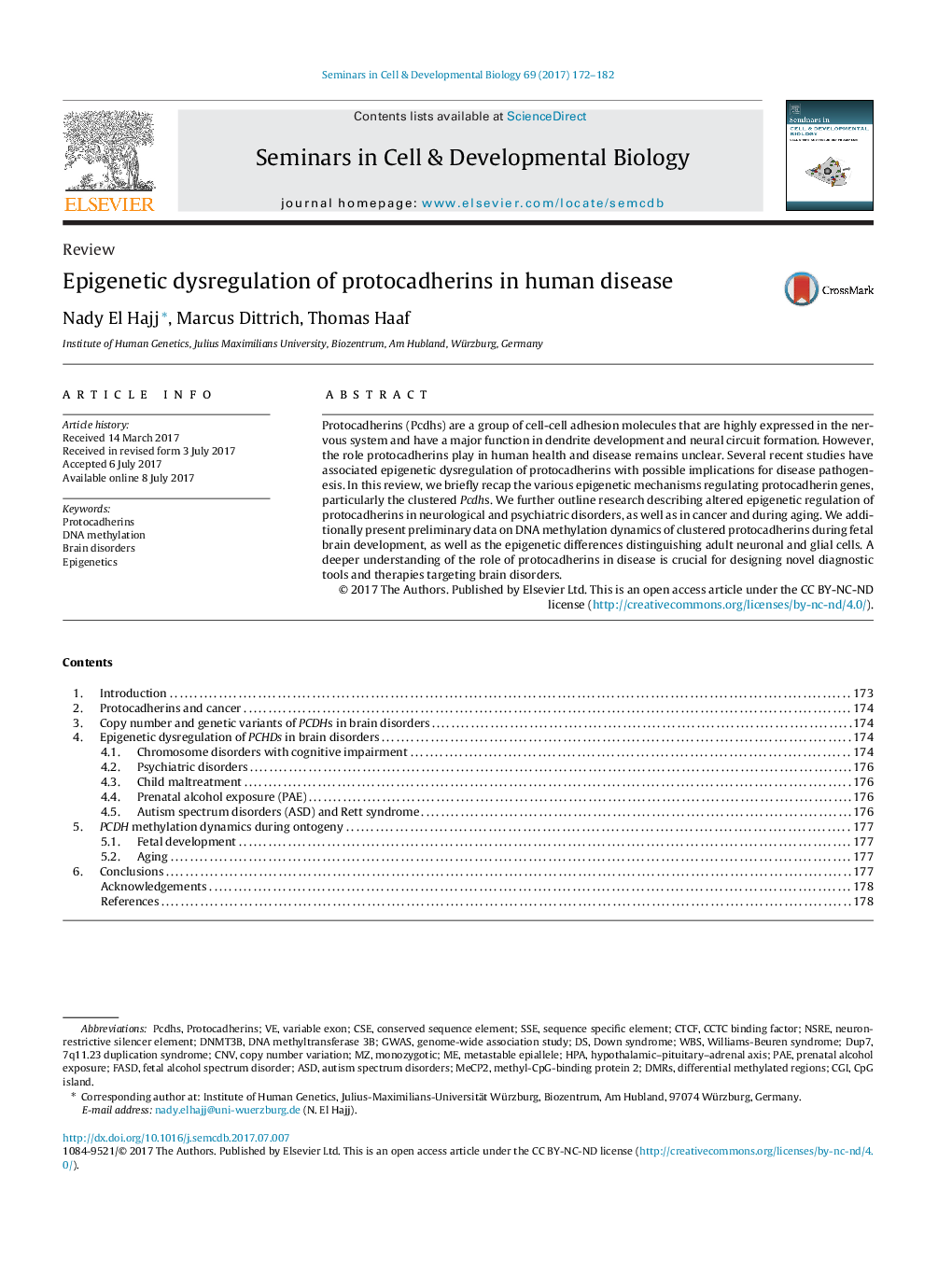| Article ID | Journal | Published Year | Pages | File Type |
|---|---|---|---|---|
| 5534823 | Seminars in Cell & Developmental Biology | 2017 | 11 Pages |
Protocadherins (Pcdhs) are a group of cell-cell adhesion molecules that are highly expressed in the nervous system and have a major function in dendrite development and neural circuit formation. However, the role protocadherins play in human health and disease remains unclear. Several recent studies have associated epigenetic dysregulation of protocadherins with possible implications for disease pathogenesis. In this review, we briefly recap the various epigenetic mechanisms regulating protocadherin genes, particularly the clustered Pcdhs. We further outline research describing altered epigenetic regulation of protocadherins in neurological and psychiatric disorders, as well as in cancer and during aging. We additionally present preliminary data on DNA methylation dynamics of clustered protocadherins during fetal brain development, as well as the epigenetic differences distinguishing adult neuronal and glial cells. A deeper understanding of the role of protocadherins in disease is crucial for designing novel diagnostic tools and therapies targeting brain disorders.
